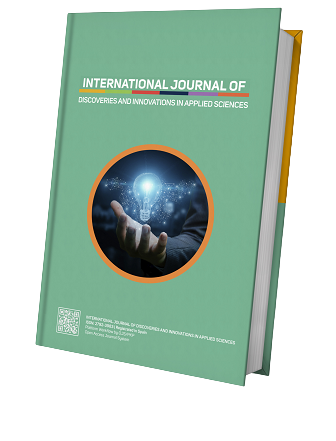Supporting Children’s Language Learning
Keywords:
language development, early childhood, second language acquisition, parental involvement, intervention programAbstract
This study focused on the importance of supporting children's learning of English as a second language in early childhood using practical strategies. The research question focuses on improving children's language skills in order to support their overall development. The aim is to investigate the impact of language development programs on young children's language skills. The methodology involved a six-week intervention program with of 50 preschool children, including storytelling, word-building activities, and music-based exercises with parent participation. The results showed significant improvements in participants' vocabulary, language skills and fluency. Parental involvement plays an important role in supporting children's language development outside of school. The results suggest that a comprehensive intervention program that includes a variety of activities and parental involvement can have a positive impact on children's language learning. Future research could investigate the long-term effects of the intervention.
References
Abdullayeva, G. (2022). LEARNERS’PSYCHOLOGY AS ONE OF THE MAIN ISSUES INFLUENCING LANGUAGE LEARNING PROCESS. ЦЕНТР НАУЧНЫХ ПУБЛИКАЦИЙ (buxdu. uz), 11(11). http://journal.buxdu.uz/index.php/journals_buxdu/article/download/6321/4013
Abdullayeva, G. G. (2023). LANGUAGE LEARNING AND PSYCHOLOGY. Finland International Scientific Journal of Education, Social Science & Humanities, 11(2), 555-560. http://farspublishers.org/index.php/ijessh/article/view/520
Abdullayeva, G. G. . (2023). Ways of Motivating Young Learners in EFL Classroom. Miasto Przyszłości, 32, 122–124. http://miastoprzyszlosci.com.pl/index.php/mp/article/view/1109
Dickinson, D. K., & Neuman, S. B. (Eds.). (2006). Handbook of early literacy research (Vol. 2). Guilford Press.
Fernald, A. (2013). Intonation and communicative intent in mothers' speech to infants: Is the melody the message? Child Development, 84(5).
Hannon, P., & Nutbrown, C. (2011). Early childhood literacy. Sage.
Kraus, N., Slater, J., Thompson, E. C., Hornickel, J., Strait, D. L., Nicol, T., & White-Schwoch, T. (2014). Music enrichment programs improve the neural encoding of speech in at-risk children. Journal of Neuroscience, 34(36).
Moats, L. C., & Tolman, C. (2009). Language essentials for teachers of reading and spelling (LETRS): The speech sounds of English: Phonetics, phonology, and phoneme awareness. Voyager Sopris Learning.
Piazza, S., & Kerr, E. (2019). Everyday talk: Building and reflecting on language and literacy at home and school. Teachers College Press.
Tabors, P. O. (2008). One child, two languages: A guide for early childhood educators of children learning English as a second language. Brookes Publishing Company.





